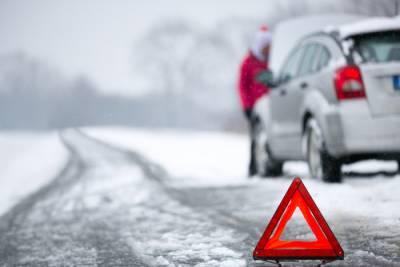
he cold weather itself may also cause injury if a victim is left stranded. A winter preparedness kit can reduce that risk. Learn what to put in yours, and discover how an experienced attorney can help you pursue compensation for any accident-related injuries you may sustain in a crash.
Everyday Winter Emergency Kits
An “everyday” winter emergency kit is one that you have in your vehicle throughout the duration of the winter season. It should include items that you may need in the event of an emergency. The National Highway Traffic Safety Administration (NHTSA) recommends that you include the following items:
- A fully stocked first-aid kit,
- Gloves and hats,
- Blankets,
- Flares,
- Jumper cables,
- A spare phone charger,
- Water,
- A miniature snow shovel, and
- Sand or cat litter (for traction when your vehicle is stuck).
If you take medication throughout the day (i.e. heart medication, diabetes medication, etc.), you may also want to ensure you have a spare dose or two in your emergency kit. Doing so can reduce the risk of health-related complications while you are stranded.
Winter Emergency Kits for Long Trips
Driving for long distances in inclement weather can be extremely dangerous for motorists – and not just because the risk of experiencing a crash is higher. There is also the increased risk of being stranded for long periods of time, which is only further heightened, the further you travel from home. Be prepared by packing these extra items in your emergency kit before a long trip:
- An atlas or map,
- A compass,
- Coveralls or a spare coat,
- Ready-to-eat food items,
- Medications, and
- Winter boots.
If you do experience a crash and have not sustained any life-threatening injuries, it is recommended that you stay with your vehicle as long as possible. Venturing out only increases your risk of injury. If you must leave your vehicle because the situation requires it (i.e. no fuel, no cell phone service, or injury to a family member), ensure that you take every precaution possible. Bundle up and take your compass, map, and some food and water with you.. These items could save your life.
Pursuing Compensation After a Crash-Related Injury
If you or someone you love has been injured in a crash this winter season, contact Herrling Clark Law Firm, Ltd. for assistance. Committed to ensuring you obtain the compensation that you deserve, our seasoned Green Bay auto accident lawyers can handle all the legal details of your case and aggressively negotiate the most favorable settlement possible. Call 920-739-7366 for your free consultation.
Source:
http://www.foxnews.com/auto/2017/11/30/winter-driving-tips-and-precautions.html


